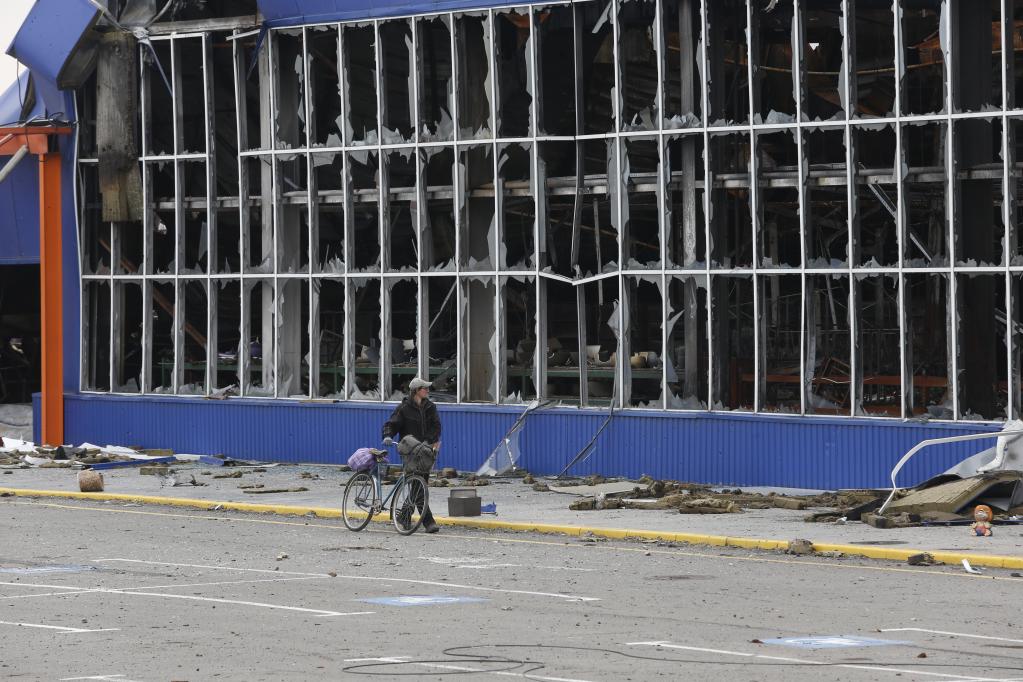The Danger of Winning the Information War

As propaganda master Joseph Goebbels once conceded, ‘The lie can be maintained only for such time as the state can shield the people from the political, economic and/or military consequences of the lie.’
With military conflict in Ukraine raging, an information war is being waged across mass media; a war most assume Russia is losing. The goal in the West appears to be sustaining the political will and economic sacrifice necessary to continue the conflict and prepare their populations for the fallout from sanctions on Russian commodity exports.
To achieve this, Western media monopolies are frantically expunging the historical record, eager to start the war clock on February 24—as though the conflict emerged apropos of nothing; a rapacious imperial war or the aberration of a mentally ill megalomaniac; a historic battle between good and evil, David and Goliath.
The power these monopolies yield is truly awesome. In 1984, George Orwell imagined armies of workers diligently disappearing references to inconvenient truths. Today, that power is wielded by a relatively small handful of technicians tinkering with algorithms and legislatures, outlawing sources that deviate from the approved narrative with the stroke of a pen.
The overarching goal of this censorship is to erase the eight years of civil war that precipitated the current crisis; the two rounds of peace negotiations that led to the Minsk Accords, which were guaranteed by France and Germany; and the 14,000 civilians killed in east Ukraine’s industrial heartland, known as the Donbas, in the years leading up to February 24. But perhaps most importantly, any mention of Western complicity in the coup that ousted the democratically elected President Viktor Yanukovych and replaced him with Petro Poroshenko must be hidden. To this end, dissenting voices must be silenced and an alternative narrative constructed.

For example, Russian media outlets like Russia Today (RT) and Sputnik have been excised from the airwaves and banned from app stores; sharing their content has been prohibited to varying degrees across the Western world. Even those tangentially related to Russian media, like UK politician George Galloway, have been branded with the figurative mark of Cain—”Russian state-affiliated media,” despite the demise of their platforms. Anyone questioning this simplistic narrative is driven from YouTube, Twitter and Facebook, while those same organizations relax controls on hate speech and misinformation directed against Russia—and Russians more generally.
Google and Duckduckgo search engines have both admitted to algorithmically burying content deemed damaging to the narrative and Google has threatened to demonetize websites carrying content that could damage the image of the Ukrainian Government— whether true or not.
Additionally, Google has been frantically deleting back catalogues of content from YouTube that could be deemed inconvenient. Without exaggeration, thousands of hours of content have been removed from the website and much else has been “shadow banned,” or hidden.

As part of constructing this narrative, the UK’s BBC has received Foreign Office grants to help “build capacity” at a Ukrainian news channel called Hromadske, which it celebrates as “the first media outlet in Ukraine incorporated as a nongovernmental organization.” However, this channel received extensive funding from the American, Dutch and Canadian governments as well as the George Soros’ International Renaissance Foundation. Unsurprisingly, this station is one of the few not banned in Ukraine and is regularly cited, with a straight face, by the BBC in its coverage of the conflict.
Mainstream Western media outlets are routinely citing maps and information from sources with strong links to pro-war individuals and organizations, such the Washington, D.C.-based Institute for the Study of War. At the same time, online efforts to delete history and censor information demonstrate that the scope and extent of the information war are huge, and in terms measured by the West, Russia is losing wholesale. However, winning the information war carries with it potential costs.
Whereas in previous conflicts over the past 20-odd years, the truth was obfuscated long enough to maintain political will until it was largely forgotten as the 24-hour news cycle rumbled on, the consequences of the current conflict might be harder to hide. As propaganda master Joseph Goebbels once conceded, “The lie can be maintained only for such time as the state can shield the people from the political, economic and/or military consequences of the lie.”
 Facebook
Facebook
 Twitter
Twitter
 Linkedin
Linkedin
 Google +
Google +










